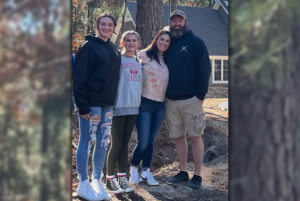Military medical malpractice is a significant issue affecting service members and their families, resulting from negligence or substandard care within military healthcare facilities. The complex legal and administrative landscape surrounding these cases can be challenging for those seeking justice. Advocacy groups play a crucial role in supporting service members who have experienced medical malpractice, providing resources, guidance, and a platform for their voices. This blog explores how advocacy groups influence the field of military medical malpractice, highlighting their roles, contributions, and the impact they have on the pursuit of justice.
The Role of Advocacy Groups in Military Medical Malpractice
- Raising Awareness
Advocacy groups are instrumental in raising awareness about military medical malpractice and its effects on service members. Their efforts include:- Public Campaigns: Organizations often run public campaigns to highlight the issue of medical negligence within military healthcare systems, bringing attention to the challenges faced by affected individuals.
- Educational Resources: Advocacy groups provide educational materials to service members, veterans, and their families, informing them about their rights and the steps they can take if they experience medical malpractice.
- Providing Support and Resources
Service members dealing with medical malpractice need comprehensive support, which advocacy groups offer through various means:- Legal Assistance: Many advocacy groups partner with legal professionals to provide guidance on navigating the complexities of medical malpractice claims. They may offer referrals to experienced attorneys or provide assistance in understanding legal processes.
- Emotional Support: Support groups and counseling services help individuals cope with the emotional and psychological impact of medical malpractice, offering a space to share experiences and receive support from others in similar situations.
- Advocating for Policy Changes
Advocacy groups play a vital role in pushing for legislative and policy changes to improve the military healthcare system and address issues related to medical malpractice:- Legislative Advocacy: These organizations work with lawmakers to propose and support legislation aimed at enhancing accountability within military healthcare facilities, improving patient safety, and expanding the rights of service members seeking redress.
- Policy Reform: Advocacy groups push for reforms in military medical policies and procedures to prevent malpractice and ensure that service members receive the standard of care they deserve.
- Helping Navigate the Claims Process
Navigating the claims process for military medical malpractice can be complex and daunting. Advocacy groups assist service members by:- Guidance Through the System: They provide detailed information on how to file a claim, what evidence is needed, and the steps involved in pursuing legal action.
- Assisting with Documentation: Advocacy groups help individuals gather and organize necessary documentation, such as medical records and evidence of negligence, to support their claims.
- Offering Financial Support
The financial burden of medical malpractice claims can be significant. Advocacy groups may offer:- Financial Assistance Programs: Some organizations provide grants or financial aid to help cover legal fees, medical expenses, or other costs associated with pursuing a malpractice claim.
- Fundraising Efforts: Advocacy groups often organize fundraising events to support individuals dealing with the financial impact of medical malpractice and to fund their initiatives.
- Building Community and Encouraging Unity
Advocacy groups foster a sense of community among service members affected by medical malpractice:- Support Networks: By connecting individuals with similar experiences, advocacy groups create support networks that offer encouragement, share resources, and provide a sense of solidarity.
- Collective Action: They facilitate collective action efforts, such as petitions or campaigns, to amplify the voices of affected individuals and bring about systemic change.
Case Studies and Success Stories
- Case Study: The Veterans’ Medical Malpractice Advocacy Group
One notable example is the Veterans’ Medical Malpractice Advocacy Group, which has successfully raised awareness about medical negligence affecting veterans. Through their advocacy efforts, they have influenced policy changes that improve the accountability of military healthcare facilities and provide better support for affected individuals. - Success Story: Legal Support for a Malpractice Claim
An advocacy group provided crucial support to a service member who experienced significant complications due to medical negligence. The organization helped the individual navigate the legal process, secure representation, and ultimately achieve a favorable outcome in their claim.
Challenges Faced by Advocacy Groups
- Limited Resources
Advocacy groups often operate with limited resources, which can constrain their ability to provide comprehensive support and expand their outreach efforts. - Navigating Complex Bureaucracy
The complex nature of military bureaucracy and legal processes can pose challenges for advocacy groups as they work to support individuals and push for policy changes. - Resistance to Change
Advocacy efforts to reform military healthcare policies may encounter resistance from institutional stakeholders, making it difficult to achieve desired changes.
Future Directions and Opportunities
- Expanding Outreach
To maximize their impact, advocacy groups can focus on expanding their outreach efforts to ensure that more service members are aware of their resources and support. - Strengthening Collaborations
Partnerships with legal professionals, healthcare experts, and other organizations can enhance the effectiveness of advocacy groups and improve the support they offer. - Advocating for Systemic Change
Continued advocacy for systemic changes in military healthcare policies and practices can lead to improvements in patient safety and accountability, reducing the incidence of medical malpractice.
Conclusion
Advocacy groups play a crucial role in addressing the issue of military medical malpractice, offering support, resources, and a platform for service members and their families. Through their efforts in raising awareness, providing legal and emotional support, advocating for policy changes, and assisting with the claims process, these organizations significantly impact the pursuit of justice and the improvement of military healthcare systems.
If you or a loved one has experienced military medical malpractice, ForTheMilitary.com is here to help. Our experienced legal team specializes in military medical malpractice claims and can guide you through the process, providing the support and advocacy needed to seek justice and obtain fair compensation. Contact us today to learn more about your options and take the next step toward resolution and recovery.

 Call Now- Open 24/7
Call Now- Open 24/7





